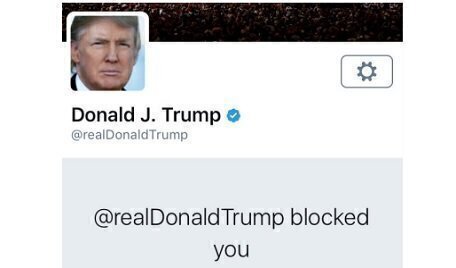Last week a federal judge based in Virginia said a local politician couldn’t block unfavorable comments from her official Facebook page, in a case with some parallels to a current lawsuit involving President Donald Trump and Twitters users.
 On July 25, Senior Judge James C. Cacheris for the Eastern District of Virginia ruled that Loudoun County Board of Supervisors chair Phyllis J. Randall took part in viewpoint discrimination. Randall blocked Brian C. Davison from commenting her Facebook page after Davison posted a comment alleging that Loudoun County’s School Board was corrupt. Randall soon reinstated Davison but Davison sued, alleging a First Amendment violation by Randall.
On July 25, Senior Judge James C. Cacheris for the Eastern District of Virginia ruled that Loudoun County Board of Supervisors chair Phyllis J. Randall took part in viewpoint discrimination. Randall blocked Brian C. Davison from commenting her Facebook page after Davison posted a comment alleging that Loudoun County’s School Board was corrupt. Randall soon reinstated Davison but Davison sued, alleging a First Amendment violation by Randall.
Cacheris found that Randall’s actions didn’t violate Davidson’s 14th Amendment due process rights, but he agreed there was a First Amendment issue. "Defendant’s ‘Chair Phyllis J. Randall’ Facebook page operates as a forum for speech under the First Amendment to the U.S. Constitution and Article I, § 12 of the Virginia Constitution,” said Cacheris.
The court found that Randall and a friend operated the Facebook page outside of work “to share information of interest with the County she serves.” The page’s About page identified Randall as a public official and listed her contact information at a county facility.
And on a Facebook post, Randall asked “to hear from ANY Loudoun citizen on ANY issues, request, criticism, compliment, or just your thoughts.” After a joint public town hall hosted by the Board of Supervisors and the School Board, Davison posted the critical comment on Randall’s Facebook page. Randall deleted the post that Davison commented on, and then blocked Davidson from commenting on the page for a 12-hour period.
“Based on Defendant’s testimony, the Court finds that Defendant banned Plaintiff from her Facebook page because she was offended by his criticism of her colleagues in the County government,” said Cacheris.
Cacheris also cited two recent Supreme Court cases in his decision. “If the Supreme Court’s First Amendment jurisprudence makes anything clear, it is that speech may not be disfavored by the government simply because it offends,” he wrote, citing Matal v. Tam.
And Cacheris frequently cited Packingham v. North Carolina, a decision where Justice Anthony Kennedy said that digital platforms “can provide perhaps the most powerful mechanisms available to a private citizen to make his or her voice heard. They allow a person with an Internet connection to ‘become a town crier with a voice that resonates farther than it could from any soapbox.’”
The Packingham decision is also at the heart of a lawsuit against President Donald Trump, former White House Press Secretary Sean M. Spicer and White House Social Media Director Daniel Scavino, filed by the Knight First Amendment Institute at Columbia University in June.
The Knight Institute is representing filed seven plaintiffs in the United States District Court For The Southern District Of New York. It wants the Trump team to immediately restore the plaintiff’s access to Trump’s Twitter account, so they can comment on Trump’s Twitter messages. “Plaintiffs respectfully ask that the Court declare that the viewpoint-based exclusion of the individual Plaintiffs violates the First Amendment, and order the Defendants to restore their access,” says the 25-page lawsuit.
The Knight Institute’s legal team also contends that recent Supreme Court decisions along with Trump statements not only support the legitimacy of Twitter, but also its status as an official communications platform of the President as an elected official.
One argument sure to be made by the Justice Department is that Trump’s account in a personal Twitter account, and not subject to the limitations of a public figure speaking in a public forum. Not all experts see a strong argument supporting the Knight Institute’s case.
“There’s no right to free speech on Twitter. The only rule is that Twitter Inc. gets to decide who speaks and listens -- which is its right under the First Amendment. If Twitter wants to block Trump, it can. If Trump wants to block followers, he can,” said legal expert Noah Feldman on Bloomberg.com back in June.
The idea of Twitter as a public forum, Feldman said, is a stretch. “The impulse to treat Twitter as a public forum is understandable. First Amendment students sometimes get their minds blown when they realize Facebook isn’t a public forum, either, but a privately controlled forum like Fox News or MSNBC,” he said.
But the Knight Institute was optimistic after the ruling from Cacheris. "We hope the courts look to this opinion as a road map in holding that it is unconstitutional for President Trump to block his critics on Twitter," Alex Abdo, a senior staff attorney at the Institute, told The Wall Street Journal in a statement.
Scott Bomboy is the editor in chief of the National Constitution Center.







